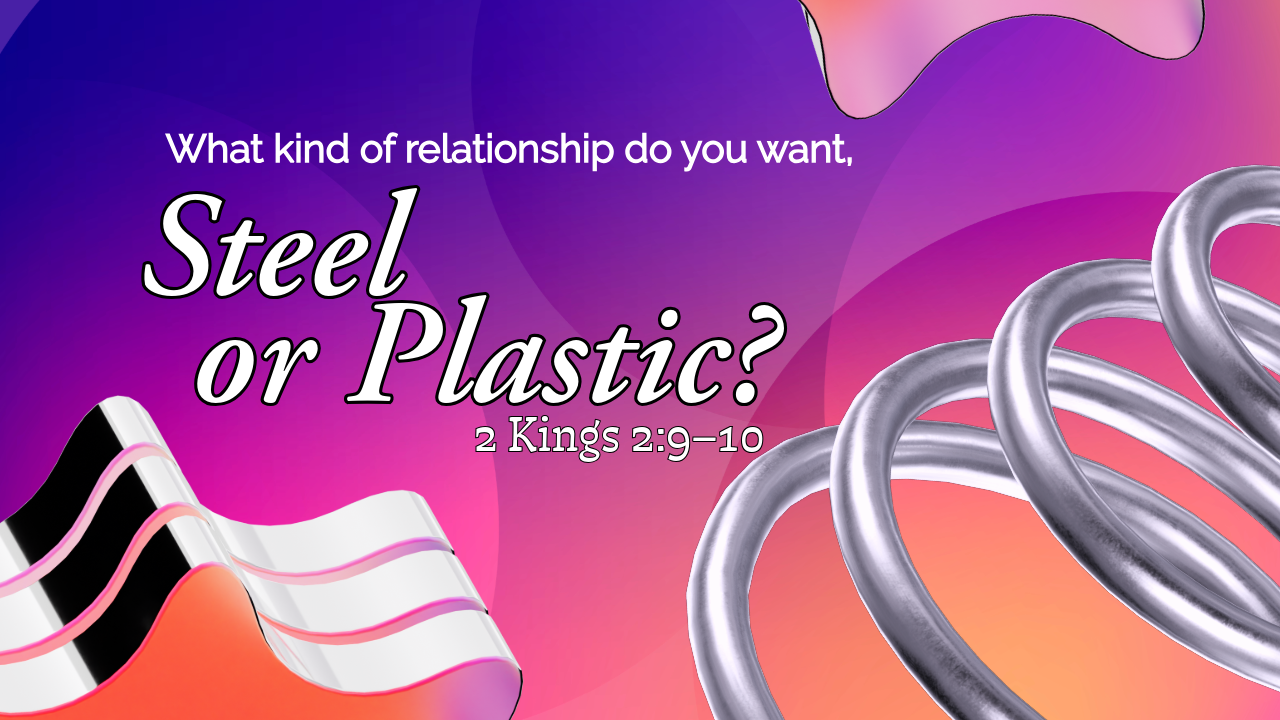Over the last few weeks, we have been delving into the relationship reset, how to improve our relationships God’s way. This week we will take another look at relationships and how we can have the relationships we all want, the strong and lasting ones. The challenge is that while we want strong and lasting relationships, we often treat people and relationships like they are disposable. We want relationships of steel while we are trafficking in plastic. Steel becomes strong and hardened when it is forged in the fire, and the same is true for our relationships. What kind of relationship do you want, steel or plastic?
If we truly want relationships of steel, we must realize those relationships take time to develop. We see this truth in Scripture in the relationships of Jesus and Peter, Paul and Timothy, David and Nathan, Elijah and Elisha, and many others. Significant, strong, and lasting relationships do not develop overnight; they take time to build. In 2 Kings 2:9–10, we read this conversation: “When they had crossed, Elijah said to Elisha, ‘Tell me, what can I do for you before I am taken from you?’ ‘Let me inherit a double portion of your spirit,’ Elisha replied. ‘You have asked a difficult thing,’ Elijah said, ‘yet if you see me when I am taken from you, it will be yours; otherwise, it will not.’” Theirs was a relationship of steel, and it was built on commitment. Here Elisha made a huge request to which Elijah does not agree right away. His final phrase implies commitment, loyalty, and investment in their relationship would be the deciding factor in whether he agreed to Elisha’s request.
Relationships of steel also require a desire to see only the best for the other person. Elijah was taken up in a whirlwind. Often in our relationships, one person is figuratively “taken up” (elevated, promoted, honored), and the other person must be able to handle it. Many surface relationships crumble under the pressure of envy and jealousy, but healthy ones thrive and celebrate the victories during seasons of promotion.
Relationships of steel require working through the messes of life. Healthy relationships require it. Why? Every relationship has challenges, crises, misunderstandings, and hurt, but it is in the working through these issues that relationships are made strong. Plastic relationships are often abandoned when the going gets messy. Lastly, it is crucial to understand relationships of steel require sacrifice. Healthy relationships require time, energy, focus, and other qualities to be smartly allocated. We are each a limited resource. We cannot give everything to everybody. We must be strategic in the relationships that matter. As we strive for relationships of steel, let us ask God to guide us to invest in the relationships that matter.

